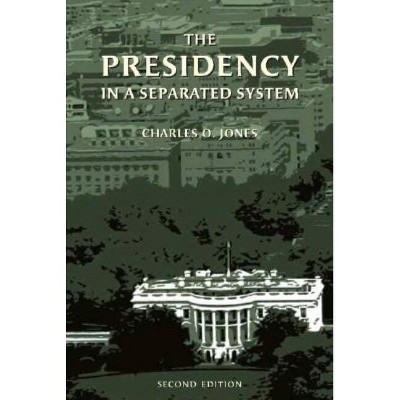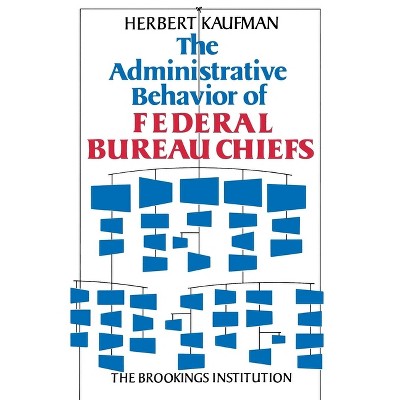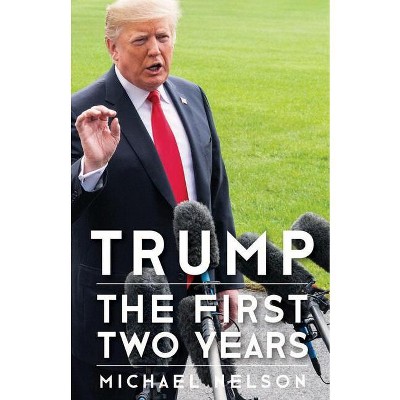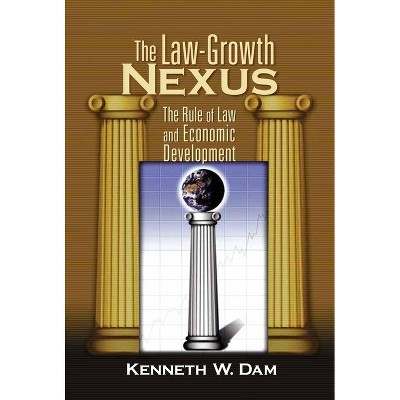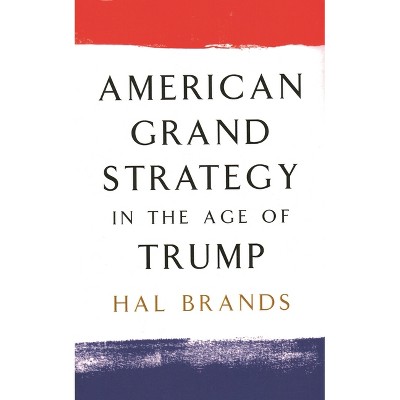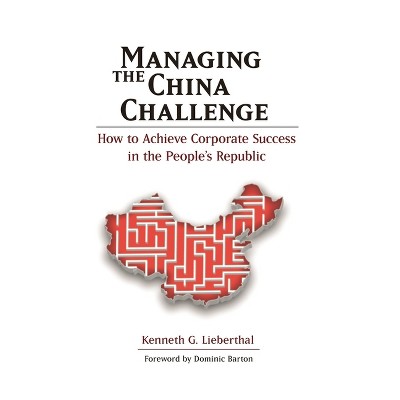Trump, the Administrative Presidency, and Federalism - by Frank J Thompson & Kenneth K Wong & Barry G Rabe (Paperback)

About this item
Highlights
- How Trump has used the federal government to promote conservative policiesThis book analyzes the dynamics and unique qualities of Trump's administrative presidency in the important policy areas of health care, education, and climate change.
- About the Author: Frank J. Thompson is Board of Governors Distinguished Professor at the School of Public Affairs and Administration and the Center for State Health Policy at Rutgers University.
- 258 Pages
- Political Science, American Government
Description
About the Book
How Trump has used the federal government to promote conservative policies This book analyzes the dynamics and unique qualities of Trump's administrative presidency in the important policy areas of health care, education, and climate change. In each of these spheres, the arri...Book Synopsis
How Trump has used the federal government to promote conservative policies
This book analyzes the dynamics and unique qualities of Trump's administrative presidency in the important policy areas of health care, education, and climate change. In each of these spheres, the arrival of the Trump administration represented a hostile takeover in which White House policy goals departed sharply from the more "liberal" ideologies and objectives of key agencies, which had been embraced by the Obama administration.
From the Back Cover
"How Trump has used administrative powers to pursue his policy goals
The presidency of Donald Trump has been unique in many respects. His abrasive personal style, disregard for conventional norms of civil society, and disrespect for factual information are familiar to everyone.
Less familiar are the ways in which Trump has attempted to reverse the policies of his predecessor and advance positions that lack widespread support in Congress.
Trump has been particularly aggressive in the use of executive power, or the "administrative presidency," to pursue his goals, including executive orders and regulatory changes.
This book analyzes the dynamics and unique qualities of Trump's administrative presidency in healthcare, climate change, and education. In each of these policy spheres, the Trump administration pursued hostile takeovers in which White House policy goals were advanced through administrative action rather than legislation.
The authors show how Trump took unprecedented steps to undermine and otherwise reshape domestic policy programs through executive action. But the book also emphasizes how the forces of federalism, especially state attorneys general, governors, and legislatures, have often undercut Trump's executive initiatives and reduced their impact on who gets what from government in the healthcare, climate, and education arenas.
"Review Quotes
"This new book by Frank Thompson, Kenneth Wong, and Barry Rabe provides one of the first scholarly books on President Trump's use of the administrative presidency to circumvent the legislative process in order to pursue his public policy agenda. However, the main contribution of this book is that the authors go much further by analyzing the intersection of Trump's administrative presidency and American federalism."--Publius
"In this timely and important book, the authors bring expertise in their respective fields of healthcare, the environment, and education to bear on the subject of the administrative presidency and federalism with an unusual degree of nuance, insight, and sophistication. It deserves to be read widely and will inform both the academic and policymaking communities."--Timothy J. Conlan, University Professor Emeritus of Policy and Government, George Mason University
"This is an important, timely, and informative book. Three respected policy experts examine what the Trump administration has wrought during its first three years. While most discussions of the Trump presidency have focused on his often-outrageous rhetoric, to what extent has this administration affected public policy? We know that its legislative record is minimal, but what about the use of executive authority by the president himself and his appointees? This detailed look at a variety of policy arenas provides answers to these crucial questions."--R. Shep Melnick, Thomas P. O'Neill, Jr., Professor of American Politics, Boston College
About the Author
Frank J. Thompson is Board of Governors Distinguished Professor at the School of Public Affairs and Administration and the Center for State Health Policy at Rutgers University. He has published extensively on issues of health policy with particular attention to the impact of federalism. His most recent book is Medicaid Politics: Federalism, Policy Durability, and Health Reform. He is a Fellow of the National Academy of Public Administration.Kenneth K. Wong is the Annenberg Professor of Educational Policy, Director of Urban Education Policy Program, and Professor of Political Science, Public Policy, and Urban Studies at Brown University. He has published several books on education policy, governance, and accountability, including The Education Mayor and Funding Public Schools: Politics and Policy.Barry G. Rabe is the J. Ira and Nicki Harris Family Professor of Public Policy at the Gerald R. Ford School of Public Policy at the University of Michigan. He has received four research awards from the American Political Science Association and has published widely in the areas of environmental policy and federalism. Recent books include Can We Price Carbon?, Greenhouse Governance, and Statehouse and Greenhouse.
